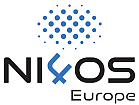Subject: property rights, formal institutions, economic freedom, economic growth.
Year: 2017
Type: Proceeding article
Title: PROPERTY RIGHTS AS FORMAL INSTITUTIONAL DETERMINANT OF ECONOMIC DEVELOPMENT IN SELECTED CENTRAL AND SOUTH-EUROPEAN COUNTRIES
Author: Shapkova Kocevska, Katerina; Nedanovski, Pece
Abstract: The treatment of institutions as important determinant of economic prosperity in the countries around the world is not a novelty in economic literature. In the past few decades, examination of this topic has had considerable progress presented by increased interest in research and published work concerning understanding and definition of institutions, creating different classifications of institutional arrangements and evaluation of their impact on economic development, trade and investment. Douglas North, Oliver Williamson, Elinor Ostrom, Daron Acemoglu, Simeon Djankov, Steve Pejovich are a few of the scholars who have succeeded in their efforts to make institutional economics a separate discipline in economic science. By employing different criteria, many classifications of institutions have been made. In this presentation, the authors start from one of the most common classification of the institutions: formal versus informal institutions. By formal institutions, the formal rules of the game are assumed such as property rights, contracts, constitutions, conventions and laws. Informal institutions, on the other hand, represent the informal constraints of human behavior usually presented by different norms, values, language, customs, traditions etc. New institutional economics (NIE) places protection of private property and well defined property rights as one of the basic pillars of market economies. These formal institutions can be beneficial for economic prosperity in many ways. Stable and predictable institutional environment where ownership rights are respected and contracts are enforced stimulates the economic growth. These institutional arrangements have specific and predictable effects on the resource allocation, innovation stimulus and technological progress. Economic literature acknowledges different indicators as representative values for protection of property rights. Here within, two of them are examined: on one hand, the Rule of Law Index as a widely used indicator published by the World Bank in the Worldwide Governance Indicators Project, and on the other hand, the Legal System and Protection of Property Rights Indicator coming from Economic Freedom of the World Report published by the Frazer Institute. The sample of countries that are included in the study is consisted by selected transitional economies from Central and Southeast Europe. The authors run several OLS regression growth models in order to test the hypothesis that protected property rights are determinant of economic prosperity in the afore mentioned countries. The results of the research confirm the thesis that protection of property rights enhances institutional environment and kindles the economic growth.
Publisher: Association of Economists and Managers of the Balkans
Relation: International Scientific Conference EMAN 2017 Economics & Management: Globalization Challenges, Ljubljana, Slovenia March 30, 2017
Identifier: oai:repository.ukim.mk:20.500.12188/6938
Identifier: http://hdl.handle.net/20.500.12188/6938Identifier: 272
Identifier: 283


